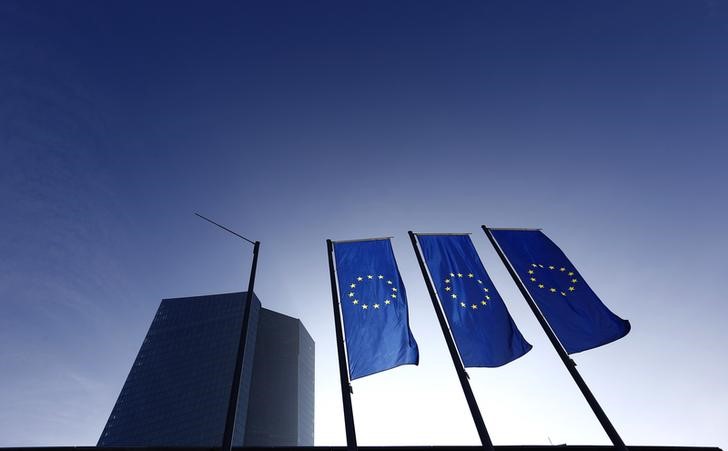By Sam Forgione
NEW YORK (Reuters) - European stocks are poised to become the darlings of 2015 on the back of the European Central Bank's 1 trillion euro government bond-buying programme.
The ECB's programme, which began on Monday, will likely spur already surging demand for European equities as the euro weakens and European bond yields fall to record lows.
"The floodgates of new demand into European equities are just starting to open," said Marc Halperin, portfolio manager at Federated Investors in New York, who has invested roughly 76 percent of his $1.8 billion Federated International Leaders Fund
Demand for European stock mutual funds and exchange-traded funds has gained momentum this year with inflows of $4.3 billion through March 4, according to Lipper data, while U.S.-focused stock funds have posted $4.9 billion in outflows.
Last year, European stock mutual funds and ETFs posted inflows of just $1.3 billion, compared with $116 billion into U.S.-focused stock funds.
Lipper will report new weekly flow data late on Thursday.
Data from TrimTabs Investment Research showed U.S. investors poured a record $9.7 billion into European stock ETFs between Jan. 16 and March 6.
Europe's FTSEurofirst 300 index (FTEU3) of top regional shares has rallied 15 percent this year, beating the benchmark U.S. S&P 500's (SPX) 0.9 percent loss year-to-date.
The potential for the euro to hit parity with the U.S. dollar by year-end has come into further focus, with the currency trading near $1.05 for the first time in 12 years on Wednesday. Deutsche Bank (XETRA:DBKGn) forecast on Tuesday that the euro would hit parity with the greenback by year-end and 85 cents by 2017.
Investors say a weaker euro will boost the earnings of European exporters and draw more tourism, while the contrast between the ECB's stimulus and the U.S. Federal Reserve's shift towards tighter policy should benefit European shares.
"Our equity strategists believe the rotation (into European stocks) has further to go, as fundamental drivers remain supportive," said Keith Parker, U.S. head of asset allocation research for Barclays (LONDON:BARC) in New York, in a March 5 note.
Stronger European economic data has bolstered that view.

The euro area Citi Economic Surprise Index, which measures the degree to which data has beaten expectations in the region, hit a two-year high of 61.8 on March 3 and has hovered near that level in recent weeks.